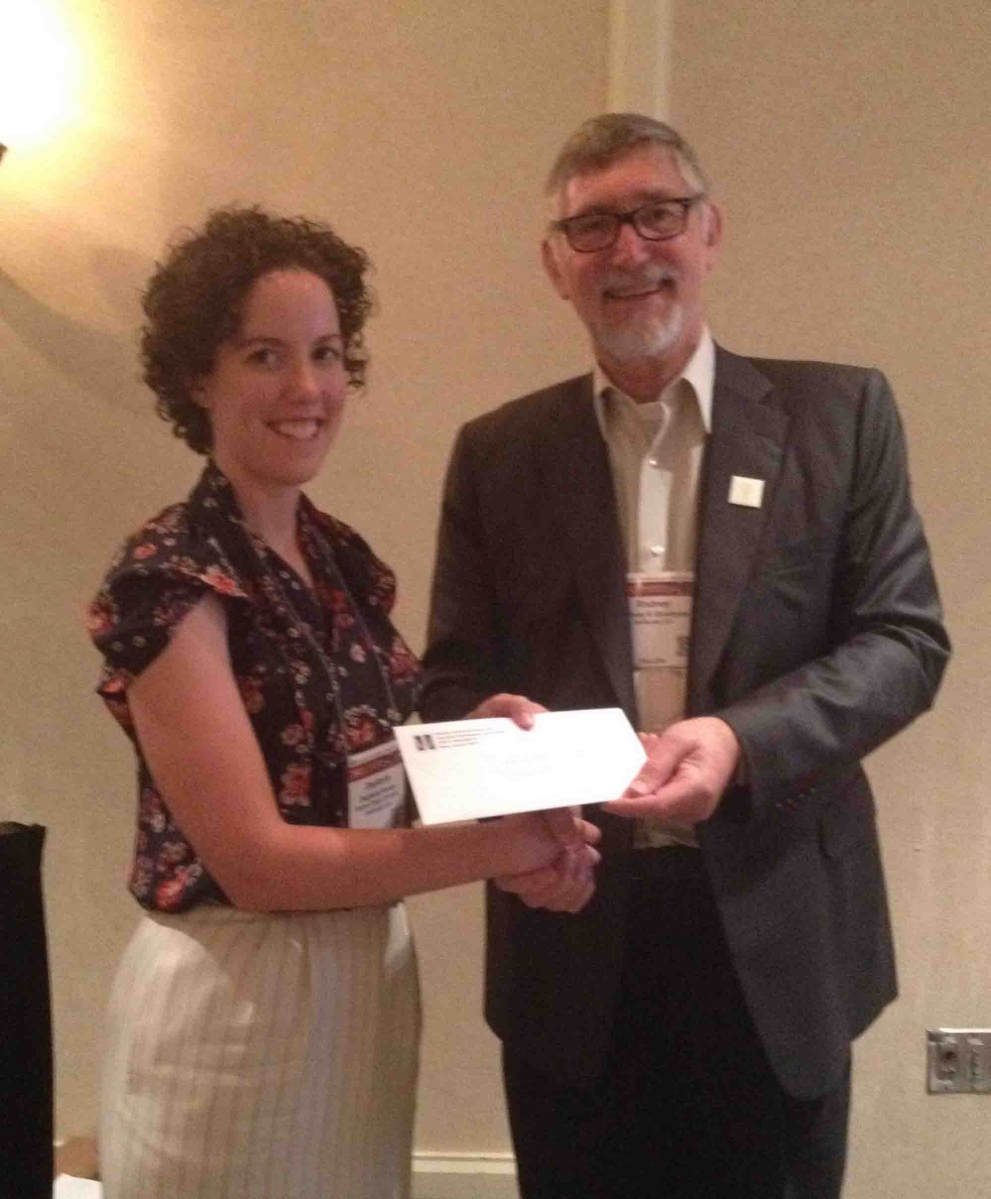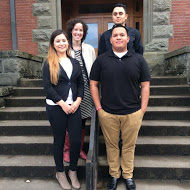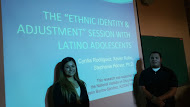WOU Research Project Helps Grow Pipeline of Minority Researchers
Posted on April 8, 2016
1 comments 1629 Views
By Carol Dennis
Breaking an Historical Bias
Throughout its history, psychology research has been dominated by white Western culture. When white researchers research people of color, using elements from the dominant culture to measure or evaluate diverse populations, the findings may be less than flattering, even racist, and often causing great harm.

Dr. Stephanie Hoover (Assistant Professor in the Department of Psychological Sciences at Western Oregon University) and her team are helping break this historical bias.
In the summer of 2015, Dr. Hoover was awarded the Charles J. Gelso, Ph.D. Psychotherapy Grant from the Society for the Advancement of Psychotherapy. This $5000 grant is allowing Dr. Hoover to continue her research into culturally accommodated therapy for Latino adolescents.
Changing the pipeline
All three of the undergraduates assisting Dr. Hoover with this research identify as Latino, and are exploring the responses of Latino adolescents in the group therapy sessions being studied. “That makes for an uncommon dynamic,” says Dr. Hoover.
Their participation in this research study represents an important element needed to change the field of psychology. “Involving historically underrepresented students as part of the research team means that we change the pipeline - increasing racial and ethnic diversity within the field of psychology,” Hoover continues.
As a white, non-Latino person,
Hoover feels strongly about collaborating with Latino researchers on this
project. “This is multicultural counseling research at its best,” she
emphasizes.
The focus of the study
Culturally accommodated therapy is psychotherapy that pays attention to culture. Dr. Hoover says, “It’s about delivering mental health services that make sense and are effective with diverse communities.”

The research team is looking at the transcripts from the final session (in a series of 12), which is considered a therapeutically important session. The adolescents are ending the group experience and trying to figure out next steps for themselves to reduce the risky behaviors that led to substance use and trouble with the law.
Building on previous study
This work builds on a research study that Hoover was involved with during her time at the University of Utah (UT). "The focus of the treatment outcome study from UT (with Jason Burrow-Sanchez as the Principal Investigator) was: Which active treatment (standard or culturally accommodated sessions) yielded the better treatment outcome of reduced substance use?" Hoover says.
The culturally accommodated treatment outcomes in the initial study were considered successful - that is to say that after treatment, participants reported reduced substance use.
Dr. Hoover’s team is exploring the Latino adolescents’ disclosures, which provide a unique perspective – that of the participants themselves.
Combing through the transcripts
The team is working with transcripts from both standard and culturally accommodated sessions. The following are the preliminary domains that the team pulled out to help identify what the Latino adolescents learned from being in therapy.
- Relationships and support within group
- Relationships and support outside of group
- Applying problem solving techniques to their own lives
- Skills learned in group and their feedback about the therapy
The next step is to create categories that will be nested within each domain. The final categories and domains will provide an aggregate picture of what the Latino adolescents say they learned in group.
The great thing about our team is that we have different knowledge bases that all contribute positively to the advancement and understanding of culturally adapted treatment.” ~ Cyntia Rodriguez

“Since joining this research project,”
Rodriguez says, “I see how little research has been done on culturally adapted
treatment. Just as we prescribe medical treatment based on individuals’ specific
needs and physical background, it makes sense to develop therapy that meets the
needs of individuals with diverse cultural backgrounds.”
Presenting their findings
Dr. Hoover’s research team presented
at Oregon Academy of Science (OAS). Two of the team
members had family members come. They got to share their preliminary results
with their families, WOU peers, WOU faculty, and other attendees at OAS, like
graduate students at Pacific University.
The team is looking forward to
presenting at WOU Academic Excellence Showcase at the end of May.
Download the slide presentation here: What Is It Like for Latino Adolescents to be in Group Therapy for Substance Use?
Recent Blog Posts
Project Spotlight: Creating Supports for Survivors of Gender-Based Violence Jun 6, 2018
Project Spotlight: Investigating Executive Function Concerns in Infants and Toddlers May 23, 2018
Project Spotlight: Reaching Out to an Underserved Population May 9, 2018
Project Spotlight: Fighting Against Gender-Based Violence Mar 14, 2018
Project Spotlight: Increasing Diversity in Early Childhood Educators Feb 7, 2018
Congratulations, Stephanie and team! This is important work and it is delightful to share the same workplace!
Patti Blasco
Posted Apr 19, 2016 by Patricia Blasco